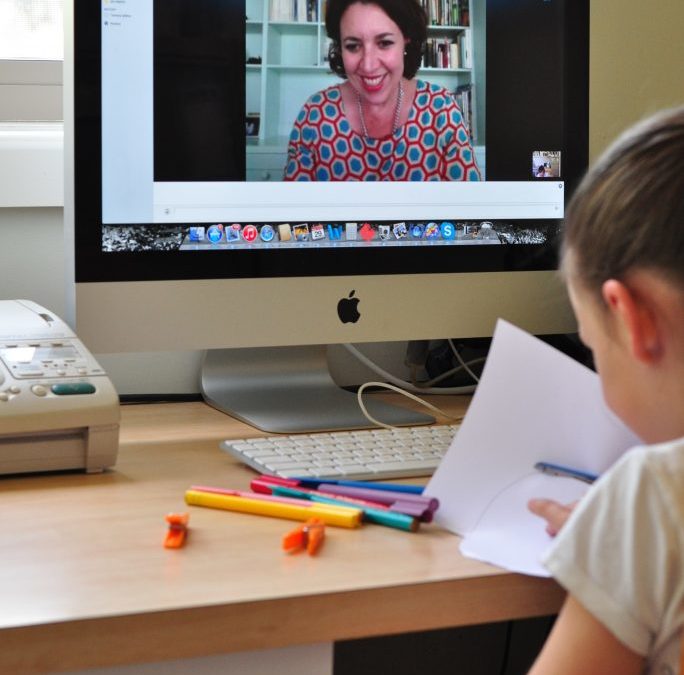If you are struggling to understand how autism and stuttering are related, this article can help clarify this complex connection. We will discuss why stuttering may be more common in individuals with autism and provide effective strategies for improving communication skills. Understanding these connections and interventions is crucial for supporting effective speech and improving the quality of life for those with autism who experience stuttering.
Key Takeaways
- Autism and stuttering can intersect, complicating diagnosis and treatment; stuttering in autistic individuals may be due to speech and language processing difficulties, anxiety, and genetic factors, requiring specialised interventions from speech pathologists.
- Early identification and intervention of stuttering in children with Autism Spectrum Disorder (ASD) is crucial, emphasising the importance of starting speech therapy during early developmental years and the necessity of access to services like Therapy Connect’s online speech therapy.
- Effective treatment for stuttering in children with autism includes speech therapy techniques focused on fluency management, reducing tension, and enhancing communication, as well as confidence-building supported by resources like Therapy Connect and NDIS funding.
What is the Link Between Autism and Stuttering?
Autism spectrum disorder (ASD) and stuttering often intersect in ways that may complicate both diagnosis and treatment. Stuttering, a fluency disorder, is commonly associated with autism, manifesting in various forms such as repetitions, blocks, and prolongations when speaking. Although not a definitive sign of autism, stuttering can exacerbate communication challenges for individuals with ASD, potentially leading to increased social withdrawal and impacting their quality of life.
While explicit statistics on the prevalence of stuttering in individuals with autism are not available, it is noted that stuttering in this population often takes the form of initial syllable repetitions, prolongations, and, less frequently, end syllable repetitions. Potential causes for stuttering in individuals with autism include speech and language processing difficulties, anxiety, and genetic factors influencing neural pathways associated with rapid vocabulary growth.
Speech and Language Challenges in Autism
People with autism are known to often experince unique speech difficulties and language challenges that can exacerbate stuttering. These challenges include:
- Speech disorganisation leads to numerous disfluencies
- Frequent use of interjections
- Phrase repetitions
- Revisions in their thought process
These difficulties can manifest as echolalia, a condition where individuals with autism repeat utterances they have heard recently or even weeks earlier.
In addition to speech disorganisation and echolalia, autistic individuals may also experience delayed speech onset, specific speech disorders like childhood apraxia, and fluency disorders such as cluttering. These challenges can significantly impact their ability to communicate effectively and this can impact learning.
However, speech pathologists can help to develop communication skills to meet the individual needs and goals of any child with autism. That may include using augmentative and alternative communication systems, assistive devices, and visual supports.
Impact of Anxiety and Emotional Factors
Anxiety and emotional reactions can exacerbate stuttering in children with autism, particularly during moments when the child feels a loss of control or experiences intense excitement. This correlation between emotional states and stuttering severity adds another layer of complexity to the issue, requiring a nuanced approach to both diagnosis and treatment.

Signs of Stuttering in Autistic Children
Stuttering in a child with autism can manifest in several forms and is often intertwined with the complex communication and social interaction challenges inherent to autism spectrum disorder (ASD). Here are the signs of stuttering in autistic children
- Repetition of sounds, words, and phrases is noticeable through their frequent and regular occurrence.
- Visible struggle or effort when speaking might be accompanied by facial or body movements such as blinking, fist-clenching, lip tremors, or head jerks.
- Vocal tension leads to changes in pitch or loudness.
- Anxiety related to speaking may lead to avoiding talking situations or word substitution out of fear of stuttering.
Early identification and intervention are vital for improving speech outcomes. Beginning speech therapy during the early developmental years offers the best opportunity for children with ASD to recover from stuttering. Starting speech therapy during the early developmental years provides the best chance for recovery.
What is the Role of Speech Therapy and Speech Pathologists in Treating Stuttering in Autistic Children?
Speech pathologists play a crucial role in diagnosing and treating speech disfluency in children with autism. They are trained and experienced in speech pathology to help people with various speech and language problems, ranging from articulation issues to understanding the nuances of conversation.
So, when it comes to treating stuttering in children with autism, a speech therapist or speech pathologist has the knowledge and experience to improve fluency skills, reduce speech disfluencies, build verbal and nonverbal communication skills, and enhance social skills. The process of diagnosing stuttering in individuals with autism requires careful consideration of their level of awareness of stuttering symptoms, which speech pathologists are equipped to evaluate.
Therapy Connect: Your Trusted Partner For Personalised Speech Therapy With Results
Therapy Connect is the leading NDIS-funded telehealth therapy provider in Australia. We offer tailored speech therapy services for children having speech and communication challenges such as stuttering. Here at Therapy Connect, our speech therapists focus on:
- Enhancing both verbal and non-verbal communication abilities.
- Developing social and conversational skills for improved interactions.
- Strengthening literacy skills and capabilities.
- Understanding and interpreting body language and non-verbal cues.
- Clarifying word and sentence pronunciation.
- Addressing specific vocal concerns.
- Ensuring safe chewing and swallowing practices.
- Utilising augmentative and alternative communication (AAC) tools effectively.
As the most trusted telehealth speech therapy provider in Australia, we are the best choice for effective speech therapy. Book your consultation today!
Benefits of Online Therapy
At Therapy Connect, we provide Australia-wide access to speech therapy, allowing clients to be matched with the best health therapists, irrespective of their location. Our telehealth therapy offers convenience and flexibility through easy-to-access sessions from home or school, saving travel time and costs.
Why Choose Us for Your Speech Therapy Needs?
Choosing the right speech therapy service can significantly influence the journey towards effective communication. Here’s why we stand out as your best choice:
- 100% Funded by the NDIS: Financial concerns should never be a barrier to accessing quality speech therapy. Our services are fully funded by the NDIS, ensuring you receive the support you need without the stress of out-of-pocket expenses.
- Australia-wide Access: We offer Australia-wide access to our services, ensuring individuals in even the most remote areas can benefit from expert speech therapy.
- Save on Travel Time and Costs: By choosing our services, you save on the time and expenses of travelling to and from appointments.
- Personalised Programs: We understand that every individual is unique. We create personalised programs tailored to the patient’s specific goals, challenges, and preferences.
- Access to the Best Therapists: Our team consists of highly qualified and experienced speech therapists who are dedicated to providing the highest standard of care.
By choosing us, you gain access to the best professionals in the field, ensuring you receive top-tier support throughout your therapy. Get the best care for your loved ones today! Click here to schedule your consultation.
Speech Therapy Techniques
Speech therapy for children with autism and stuttering includes the following strategies:
- Managing fluency during social interactions
- Reducing stuttering and tension during speaking
- Addressing word avoidances
- Enhancing overall communication abilities
Therapists often use various techniques to help children with autism and stuttering improve their ability to express themselves. These techniques may include visual cues, speech organisers, and augmentative and alternative communication (AAC) methods such as sign language, gestures, pictures, and electronic devices. Additionally, therapies aimed at improving the control and coordination of muscles in the mouth, jaw, and neck can help support better articulation of sounds.
Direct teaching methods can also enhance grammar and vocabulary, leading to more coherent speech patterns. Speech-language pathologists play a critical role in the treatment of children with autism and stuttering, using their expertise to assess, diagnose, and implement effective speech therapy interventions.
Social Interaction and Confidence Building
Fostering social interaction and confidence in autistic children with stuttering can be achieved through:
- Collaboration with schools, therapists, and structured activities
- Speech pathologists coach autistic children on social communication and adapting language for various settings.
- Benefiting from programs like those offered by Therapy Connect
Building communication confidence in autistic children who stutter can be achieved by:
- Focusing on improved overall communication skills, such as appropriate eye contact and listening
- Using visual supports like social stories
- Fostering social interaction to aid in emotional growth and help children with autism and stuttering improve their social lives and form meaningful relationships.

Parental Guidance Tips For Supporting Your Child with Autism and Stuttering
Parents play a critical role in supporting their autistic child with stuttering. By creating a nurturing environment conducive to practising communication, they can significantly contribute to improvements in stuttering.
Encouraging conversational turn-taking and patient listening can help their child with autism and stuttering develop better speech fluency and speaking skills.
Parents are encouraged to:
Interact With their Autistic Child Who Stutters By:
- Showing kindness and respect
- Creating a supportive environment that prioritises the child’s need for encouragement and acceptance
- Incorporating play or preferred activities into teaching and practising speech tools
- Making the learning process more engaging and meaningful for autistic children
- Increasing the likelihood of these tools being used effectively beyond therapy sessions.
Frequently Asked Questions
What are the unusual speech patterns in autism?
Children with autism may exhibit unusual patterns such as clustering, idiosyncratic speech, echolalia, and abnormal prosody. These patterns can interfere with their ability to communicate effectively with others, and they may benefit from targeted treatment to improve social interactions and self-esteem.
Does autism cause speech disorders?
Autism can cause speech disorders, as individuals with autism often have challenges with communication and social skills, which can impact their ability to speak. The difficulties with speech and language in autism are heterogeneous and have multiple causes (even within the same individual).
Is there a connection between autism and stuttering?
Yes, there is a connection between autism and stuttering, as many individuals on the autism spectrum also experience fluency disorders, such as stuttering. It is not uncommon for people with ASD to have trouble communicating and maintaining relationships.
How can speech pathologists help children with ASD and stuttering?
Speech pathologists with experience in ASD can play a crucial role in diagnosing and treating speech disfluency in children with autism, as they are trained to help people with a wide variety of speech and language problems.
Final Thoughts
Understanding the link between autism and stuttering in children is crucial for early identification, intervention, and optimal treatment outcomes. Speech pathologists play a vital role in diagnosing and helping speech challenges in autistic children. Equally important is the role of parents and caregivers in creating a nurturing and supportive environment to encourage improvement and confidence.
If you’re facing these challenges and seeking professional help with speech therapy, our team is here to assist you. You don’t have to go through this journey alone – contact us now to schedule an appointment and discover how we can support you and your child’s speech and language development. Book your consultation today!




